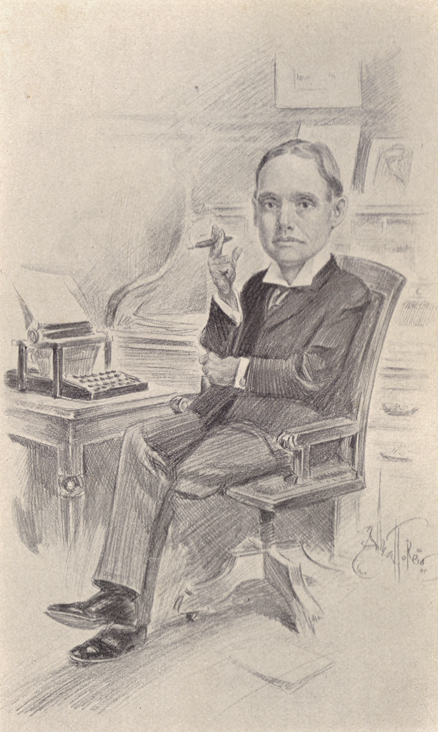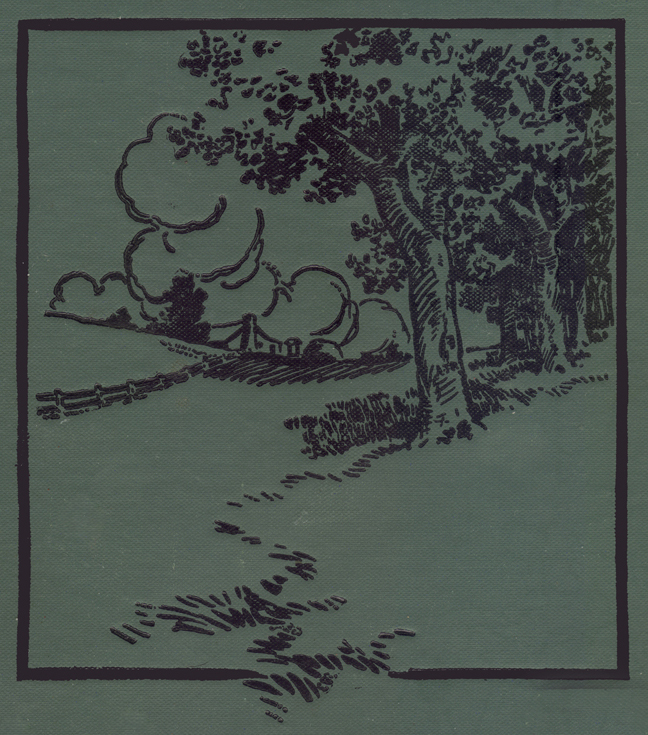
From At the Grass Roots, Comprising “The Christmas of 1883,” and Other Vagrant Sketches, by Elmer House (Dodd Gaston), with Cover Design and Frontispiece by Albert T. Reid, Topeka: Monotyped by Crane & Company, 1905; pp. 62-64.

They say youth is untroubled. The wish that lies nearest the heart of every man who fights his way is that he might go back to boyhood. The shank of every hard day brings to the tired man memories of his boyhood years. And yet I doubt that youth is happier or less the prey of sorrow than mature age. Looking backward over a stretch of years, each of which has had its share of gray days, I recall no grief so keen, so tempestuous, as that which came to me the day Flora died.
Flora was a bay mare of Kentucky lineage, which was from the spring she came a yearling until the day of her death as much a member of the family as those born into it. She had all the fine attributes of humanity without its vices. She was so kindly and gentle that little children played about her heels. 63 She never lost her temper, nor failed to do her best, and she had such courage and spirit that when she was sixteen years old, riding her without whip or spur and with no guide but a halter, I gave the dust of the country road to the fastest horses in the country round about.
It may be said that she did not understand my boyish confidences, and that what I mistook for sympathy and understanding were only evidences of her love for me, but I shall always believe she understood. When the old home ties were broken up and the family went pioneering to Kansas, Flora was taken along. The other horses were sold, but it would have been quite as possible to have left the baby behind as it would have been to leave Flora. And so the intimacy that began when I was a boy of five ended only with her death. I count it as one of my most precious memories that during all those years I never struck her with a whip or raised my voice to her in anger.
64 I shall not forget the day she died. For hours I had huddled over the fire in the kitchen stove, mute and with misery in my heart. I could not go to the barn where she lay dying, for my soul rebelled against even the sight of her suffering. And when they brought the news that she wa dead I ran blindly down to the creek bank, where I lay for hours sobbing away the grief that harrowed my soul.
Life has not always been well with me since. I have stood where death wrung the tendrils of my heart and turned to it a face unwashed by tears. Sorrow has never since laid upon me a hand so heavy that it startled me into exclamation. Therefore, I doubt that youth is more care-free than age, or less trammeled by grief. I, at least, found its sorrows quite as hard to bear.
It is seventeen years since Flora died, and I remember still. For it seems to me that of all those I have known, she was the kindliest, the gentlest, and the least disappointing.
